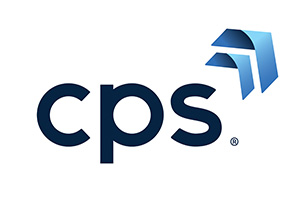SPONSORED CONTENT
If we haven’t met yet, hello, we’re CPS. We support 800+ hospitals nationwide, helping pharmacy teams accelerate growth and improve care. 30+ years ago, we were one of the first companies to help hospitals launch their 340B programs. Today, our mission continues as we help hundreds of covered entities maximize 340B savings and enhance vital community healthcare services. You can count on us for 340B program support, specialty pharmacy growth, and so much more.
If you know the 340B program, you know you must always be ready for change. And if you’re an avid 340B Report reader, you’re already well aware of the avalanche of recent changes requiring your attention. From contract pharmacy restrictions to tightening compliance mandates, administering a successful program can be more challenging than ever. Worse, the increasing pressure may be exacerbating other challenges like staffing shortages and budgetary pressures.
Here are three ways we’re currently seeing covered entities adapt, innovate, and maximize 340B program savings in the face of change. Let your peers’ experiences guide your own adaptation and evolution.
Lesson 1: Invest in expanding your in-house, entity owned pharmacy and specialty pharmacy services.
Many of your peers have built or enhanced in-house specialty pharmacy services as contract pharmacy restrictions proliferate. Some are expanding even further, developing chronic disease management pharmacy programs to support more people living with chronic conditions.
It’s well-recognized that integrating pharmacists into care teams can enhance medication adherence and clinical outcomes for patients who require specialty medications. Moreover, recent research shows coordinated pharmacy support benefits patients with conditions like diabetes, asthma, and heart failure, who are often prescribed “specialty lite” therapies. These drugs often fall between the specialty and retail settings but pose similar access and adherence challenges for patients.
“Specialty lite” therapies can represent as much as 30+ percent of a covered entity’s contract pharmacy revenue. Expanding your existing specialty pharmacy to service patients requiring these medications can enable covered entities to capture revenue that would otherwise be lost due to contract pharmacy restrictions. Meanwhile, they improve patient access, experience, and outcomes.
It’s wise to invest in in-house pharmacy service growth. Expanding integrated pharmacy services into family medicine clinics, for example, can help you improve patient outcomes while protecting 340B savings.
CASE-IN-POINT: One of our covered entity partners launched a chronic disease management (CDM) pharmacy program to support patients living with common chronic conditions requiring “specialty lite” therapies. The covered entity’s program growth has quickly outpaced its successful specialty pharmacy service, helping increase 340B savings to support its mission. The program has also improved patient retention, loyalty, and outcomes. For example, the CDM program recently helped reduce A1C levels for high-risk diabetic patients by 3.22 points, on average—or 28.6 percent per patient.
Lesson 2: Take a deep-dive into your data to more effectively manage 340B ESP
Navigating 340B ESP often creates operational challenges and headaches for covered entities. Automating data submission through your third-party administrator (TPA) feels like it can be an “easy button,” but it can leave costly gaps.
To maximize 340B savings, in-depth data analysis is vital to make informed decisions about contract pharmacy designations, and proactive data review is key to validate pricing and address any issues.
Beware of contract pharmacy designations, which are a common pitfall. Most manufacturers only allow covered entities to make selections once annually, so it’s critical to thoroughly evaluate the best approach and monitor performance on an ongoing basis.
CASE-IN-POINT: By taking a data-driven approach to implementing and managing ESP, covered entities are making more informed decisions—and seeing improved performance. For example, one of our partners with seven hospitals and a grantee recently recovered $2.9 million in savings in just five months by improving ESP workflows and reporting with our support. The pharmacy team’s operational efficiencies also improved—they gained back 40 hours of work per month for patient care.
Lesson 3: Streamline referral capture to further the impact of your 340B program.
Lately, we’ve seen more covered entity partners implement and streamline referral capture programs. These programs enable covered entities to receive 340B savings for their patients seen by out-of-network specialists. For some, 340B savings have increased by up to 25 percent as a result.
Establishing a referral capture program can be difficult since HRSA does not provide definitive guidance on this area. Each covered entity must first define its procedures and then put strong processes in place to ensure proper documentation of patient responsibility and referral.
Deploying technology solutions and engaging experts to support day-to-day management can help improve success and ensure compliance.
CASE-IN-POINT: One partner of ours—a critical access hospital with three 340B eligible primary care clinics but limited 340B eligible specialists—recently established a referral capture program. With our support, the covered entity has quickly realized 30 percent more in contract pharmacy revenue funding for vital community healthcare programs while maintaining compliance.
Learn more here.
As the 340B program continues to evolve, how will you adapt to rise above the challenges?
Fortunately, you’re not alone. Your peers and our expert team are here to help. Learn how you can transform 340B challenges into growth opportunities with the right partner by your side.

Dennis Killian is director of 340B Solutions at CPS. He can be reached at Dennis.Killian@cps.com




